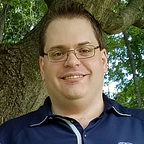Where There Is Trauma, There Is Denial, Part 1
Denial is incredibly deceptive. You can acknowledge that it exists. You can confidently believe it no longer influences your life. Yet, denial can still affect your judgment and mental health. Recently, I started to suspect that my late autism diagnosis might involve trauma. Not long after, tell-tale memories of my history with denial crept back into my mind. Most of what I have experienced comes from one tragic source: suicide.
July 2023 will mark 20 years since my attempt. I almost feel ashamed that it took me most of that time to regard suicide as seriously as I should have. What I did not expect was that long-term exposure to denial could or would reshape how I see my autistic life. Everything I have learned about my late diagnosis is about to change. To understand why, it will be helpful to show how suicide and denial have led me here.
In the time leading up to my attempt at age 21, I did not believe it could happen to me. I was not prepared. Nothing about my life felt the same afterwards. The shame was demoralizing. I knew no one who had attempted it like me to identify with or find strength from. So, I only confided in a few friends and avoided thinking about that night. Nothing made me feel better. I actually wondered if anyone could see my guilty conscience.
This was how I moved on. My life stayed this way for five years until my paternal grandfather passed away. Helping to take care of him created fond memories that inspired me to stop avoiding my past. I returned to college that spring, too. However, I felt no sense of purpose or confidence in any career path. There was no one I knew who would understand it. I masked my indecision, just as I avoided the trauma.
While I was in college, any melancholy and anxiety I had seemed to stop. But I could not resolve my indecision about what jobs to pursue. Soon after graduation in 2010, depression and anxiety returned stronger than before. In half the time it had taken before my attempt, four years later, I relapsed. Fortunately, in six months, I landed a job and abandoned what I had planned. I felt like a coward, though, and emotionally, I was a mess.
I did my best to move on. Despite earning an income, I felt no sense of purpose in my life. One year later, I was let go from the job. This time, I could actually tell that I was close to falling apart. “If I cannot decide whether or not to live my life, no one can make that decision for me.” My direct, analytical thinking had not changed. I feared I would relapse into suicide again. So I tried to address my mental health.
I reached out to the volunteer community for guidance and was thankful that some were genuinely supportive. A few offered helpful advice that empowered me with confidence. At this point, I did not accept my shamed suicide survival as traumatic. Although I no longer considered my attempt weak, I did not take it seriously. In August 2018, I relapsed again. My reputation was disparaged by influential people who overreacted to my behavior.
Double empathy caused this to happen because I did not know I was autistic. My composure collapsed, and I had a chilling cognitive distortion. I overthought the concept of end-of-life harm, which forced me to feel trapped. One year later, the loss of a local businesswoman finally broke my denial. Despite not knowing her, we were both adults. So, I could identify with her. But I would soon be tested.
On August 31, 2021, an employment agency accused me of misconduct when I took too long to achieve progress with their programs. I was blindsided. This abrupt change triggered a meltdown that collapsed my composure and caused an act of suicide furtherance. I am lucky to still be alive. Thankfully, I had an experienced counselor and case manager to rely on. After twenty years, I have survived my struggles with suicide.
Twenty years of evidence paint a very clear picture. Suicide is traumatic to endure or attempt. It was also very hard to admit that I was traumatized by my own actions. By not being able to cope with it sooner, my life was at greater risk each time. Now, I take suicide more seriously and have more experience recognizing denial. So, when I suspected my late autism diagnosis was traumatic too, I knew something was wrong.
I am just not sure if I am ready for what I am about to write…
#EndAutismDenial
